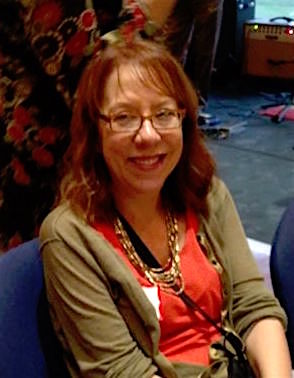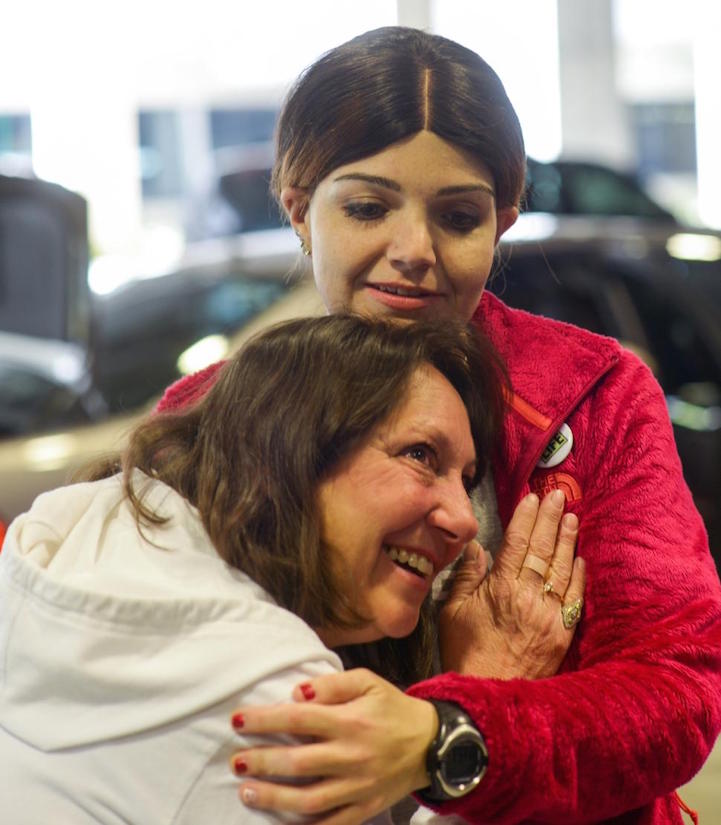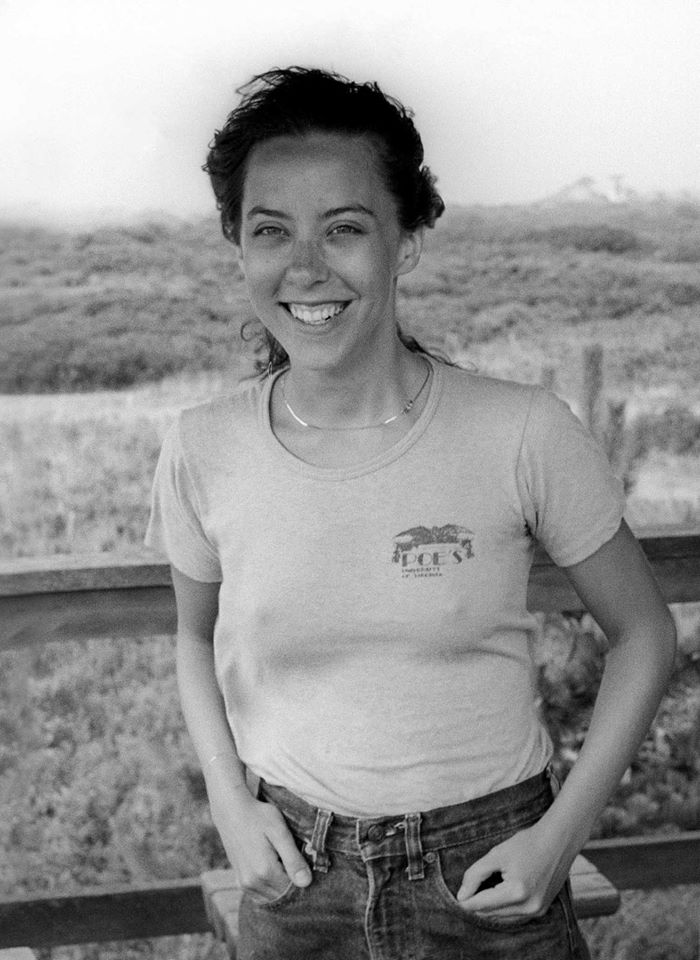“Fortune is the least capricious of deities, and arranges things on the just and rigid system that no one shall be very happy for very long.”
Evelyn Waugh, Labels (courtesy of Richard Zuelch)
Terry Teachout on the arts in New York City
“Fortune is the least capricious of deities, and arranges things on the just and rigid system that no one shall be very happy for very long.”
Evelyn Waugh, Labels (courtesy of Richard Zuelch)


Alas, we weren’t able to return to Sanibel when Hilary’s health took a turn for the worse at the end of 2017, and after that we spent many hours remembering our endlessly happy times by the water and making elaborate plans for what we would do after she got her new lungs and was able to travel once again. It stood to reason, then, that she would be pleased for her ashes to become part of the place she loved best, and so my own plan is to fly down to Sanibel this December, spend a month in the bungalow we shared, and commit Hilary’s earthly remains to the Gulf of Mexico as the sun sets. She will be home at last.
* * *
“Requiem,” by Ned Rorem, performed by Charles Bressler and the composer. The words are by Robert Louis Stevenson:
A few days after my beloved Hilary received her double-lung transplant, I published an open letter in The Wall Street Journal addressed to the family of the anonymous organ donor, now deceased, whose lungs she used to breathe during the last month of her life. It was widely read at the time, but because it was behind the Journal’s paywall, most people couldn’t read the whole thing.
Now that the rights have reverted to me, I’d like to post the complete text of my letter as a memorial to Hilary. Please feel free to pass it on.
* * *
Dear unknown friends—if I may call you that:
My beloved Mrs. T (that’s her nickname) has been in the intensive-care unit of New York-Presbyterian Hospital since December. She got a call there last Saturday night from one of the hospital’s transplant coordinators.
“We think we have a pair of lungs for you.”
We’d dreamed for years of hearing those words.

Mrs. T was diagnosed in 2005 with pulmonary hypertension, a terminal disease of the lungs and heart for which there is no cure, only palliative treatments whose effectiveness decreases over time. The only “cure” is a double lung transplant—and both lungs must come from the same person.
We entered New York-Presbyterian’s lung-transplant program a decade ago. (I say “we” because you must have a full-time caregiver, a spouse or partner or committed friend, to be accepted into the program.) We’ve been waiting ever since for her to receive a life-saving transplant. But the demand for donor organs in the U.S., and especially in New York, is far greater than the limited supply. Every 15 hours, a New Yorker dies while waiting for a transplant.
Mrs. T was told a year ago that she was now sick enough to expect “donor offers.” The two of us refer to such an offer, which can come via cellphone at any time of the day or night, as “the Big Call.” Unfortunately, Mrs. T is short and has A-positive blood, making it harder to find sero-compatible lungs that fit her chest cavity. So even though she’s been near the top of the transplant waiting list for months, we’d received only three Big Calls, two in September and another in February. All were “dry runs,” meaning that the lungs proved to be unsuitable for transplant.
When Mrs. T went into the hospital in December, we were warned that she probably wouldn’t come out alive unless she received a transplant. “I don’t think I’m going to make it,” she told me last week. “I’m going to die right here in this bed, waiting for lungs.” I did what I could to reassure her, but I knew she might be right. Yet mere days later, I was running down a hospital corridor behind her gurney, promising that I’d see her “on the other side.” And I did: At the end of a grueling 20-hour operation, her chest contained two new lungs.
That’s where you came in. You gave her a priceless gift—the gift of life.

I don’t know who you are, or who your late child or spouse or partner was. Under Federal law, the identities of organ donors and recipients are kept anonymous. After Mrs. T recovers, however, she’ll be allowed to write a letter of thanks that will be forwarded to you. It’s up to you to decide whether to reply, and to identify yourself if you like. Some families do, others don’t. I once saw a photo of a mother listening to her dead son’s heart beating inside the chest of a young woman whose life was saved when the mother decided to donate her son’s organs. I’ll always remember the ecstatic expressions on the faces of those two women.
Whatever your decision, I want you to know that I was thinking of you as I waited to find out whether Mrs. T would survive her surgery. For us, our family and our friends, the news that she had finally found a donor was cause for rejoicing—but I also knew that somewhere in the New York area, another family was mourning the loss of a loved one.
Such is the tragic truth of double-lung and heart transplants: Someone must die to save a stranger’s life.
So I thought about you—and wept.

Because your child or partner or spouse unselfishly chose to be an organ donor, and because you chose to honor his or her wishes, Mrs. T is alive today. If all goes well, she’ll be able to do things she hasn’t done for as long as we can recall. She’ll swim in the ocean again, and walk up a flight of stairs without gasping for breath after each step. Her life expectancy will be measured not in months or hours, but years.
But we know you weren’t that lucky, and so our hearts went out to you in your time of heartbreak. “Somewhere out there, the family of Mrs. T’s donor is grieving tonight,” I wrote last Sunday. “What can I possibly tell them? We are grateful beyond belief for the gift they have given us. We promise to use it well—and with love.”
Even if we don’t learn your names or find out anything about the generous person whose untimely death gave Mrs. T a second chance, I make this vow: Neither of us will ever forget you.
May your lives be a blessing to others, as they were—and are—to us.
* * *
To learn more about Hilary’s rare illness, go here.
To find out how to become an organ donor, go here.
To donate to the Pulmonary Hypertension Association, go here.
George Balanchine and Suzanne Farrell dance the “vision scene” from Balanchine’s Don Quixote, choreographed in 1965. The score is by Nicolas Nabokov:
(This is the latest in a series of arts- and history-related videos that appear in this space each Monday, Wednesday, and Friday)
“Such is the life of man. A few joys, quickly obliterated by unforgettable sorrows.
“There is no need to tell the children so.”
Marcel Pagnol, In My Mother’s Castle (courtesy of Bruce Bawer)
* * *

“Nineteen Eighty-Four,” George Orwell’s parable of the coming of Stalinist totalitarianism to England,is the most significant political novel of the 20thcentury—but one with which many readers are by now so familiar that they can no longer come to it fresh. Adapting it for the stage is one way to restore the immediacy of Orwell’s nightmare vision, but the 2014 West End production of the Robert Icke-Duncan Macmillan stage version, which played on Broadway three years ago, was a bells-and-whistles multimedia extravaganza that strayed too far from the original novel for its own good. Not so Michael Gene Sullivan’s no-frills, six-actor 2006 version, intended for performance on a near-bare stage. The script tracks the book closely, spelling out the once-unprintable obscenities at which Orwell could only hint in 1948, though most everything else, even the telescreens, is left to the imagination.
This strikes me as the right way to go, and the Alley Theatre’s Houston premiere of “1984,” as the stage version is known, should by all rights have been a box-office smash. Alas, the coronavirus closed the theater before the show could open, but the company was able to tape a performance with a three-camera crew, and it is now available as a pay-per-view webcast. Crisp, unflashily photographed and as hard-hitting as a right to the kidney, it comes across with bright clarity on the small screen, and even if you know the novel by heart, I expect that you’ll find it—as one of Orwell’s characters might have put it—tripleplusgood.
The six actors, all of whom are members of the Alley’s resident acting company, play multiple roles save for Shawn Hamilton, who is appropriately fearful and desperate as Winston Smith (you can all but smell the sweat on his brow). Everyone else provides exciting support…
* * *
Read the whole thing here. To watch 1984, go here.Rob Melrose, artistic director of the Alley Theatre and the director of 1984, answers questions about the production:

Allow me to let one of your messages stand for the rest:
You and Hilary, and your love for one another, are an inspiration. People really want to believe in that sort of love, especially right now.
I hope so.
* * *
I thought you might like to read about Hilary’s last good day.
Weakened by a decade and a half of ceaseless battle against pulmonary hypertension and the double-lung transplant surgery that we had long hoped would cure it, she was now suffering from an acute bacterial infection for which she was being treated by an antibiotic that so far had failed to reverse her rapid decline, aggravated by kidney failure and various other urgent problems. I arrived at New York-Presbyterian Hospital at midday on Monday assuming that I would be telling Hilary’s doctors to let her die as peacefully as possible, and I’d already warned her family to expect as much. I spoke to her about the gravity of her condition to prepare her for what was to come. She was intubated and unable to speak, but I could tell that she understood what I was saying.
As we prepared to start the complicated paperwork necessary to withdraw life-sustaining measures, Selim Arcasoy, the lung-transplant specialist in charge of Hilary’s case, called to tell me that he had just conferred with the rest of her transplant team and a group of infectious-diseases doctors, and that they were unanimous in believing there to be a small but “non-zero” possibility (as one of them put it) that they could still get the infection under control. I felt that the decision to continue treatment should be left to Hilary, so I laid the situation out to her, then said, “Darling, this is very important—you must make your wishes clear to me. If you want to continue the antibiotics, blink.” She blinked, unambiguously and right on cue.

I told the doctors to hold off on the paperwork and went back into her room. Then an inspiration came to me. “Sweetheart, let’s listen to some happy music,” I said. I opened up my MacBook Air and booted up iTunes, and we spent the next hour and a half listening to joyous records that I knew she liked: Louis Armstrong’s “Back o’ Town Blues,” Leonard Bernstein’s Candide Overture, Johnny Cash’s “Get Rhythm,” Ry Cooder’s “FDR in Trinidad,” Paul Simon’s “Graceland,” Stephen Sondheim’s “Getting Married Today.” Her eyes opened fully for the first time in a month, then grew wide with what I knew was pleasure. I thought: This may be our last real day together—and it’s been a good day, a day we wouldn’t have had without Dr. Arcasoy.
The very last thing I played was the chamber-orchestra version of Aaron Copland’s Appalachian Spring, a piece that had always been close to both our hearts. By then, Hilary was clearly growing tired, and I kissed her and went home to rest up for whatever was to follow, completely drained but profoundly happy.
She died the following night, peacefully and without struggle.
* * *
To learn more about Hilary’s rare illness, go here.
To find out how to become an organ donor, go here.
To donate to the Pulmonary Hypertension Association, go here.
The New England Conservatory Contemporary Ensemble plays the original chamber-orchestra version of Aaron Copland’s Appalachian Spring in concert in 2014:
(This is the latest in a series of arts- and history-related videos that appear in this space each Monday, Wednesday, and Friday)
An ArtsJournal Blog